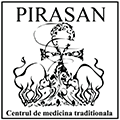The panic attacks are a psychological affection manifested by the intense experience of fear or anxiety states that do not have a logical explanation or obvious reasons. Their duration varies, but it does not exceed 10 minutes as an average. They occur suddenly and their frequency cannot be predicted.
People who suffer such fits cannot control their reactions or thinking anymore: the explosion of feelings and thoughts makes it impossible for them to come back to reason. Statistics reveal that worldwide at least one person out of 75 will undergo a panic attack in her lifetime and the numbers are growing.
The panic attacks are triggered by various contexts and factors; they may occur in environments that one’s psychic thinks hostile or – on the contrary – in familiar environments, environments that should provide a certain degree of safety and mental comfort. The context and the factors trigger an association between the situation and a traumatizing experience in the person’s past.
The intensity of panic attacks is much greater than anxiety or depression states; it affects visibly the quality of a person’s life and it may lead to the individual’s isolation from society. Most times the periods between attacks are accompanied by depression and anxiety states. Failing to treat this affection may generate an obsessive and irrational pathological fear of public spaces and crowded places.
This fear is born from the trauma that person suffered and, in her behavior, it shows itself by the individual’s rejection of all persons who are seen as insecurity and crises-generating factors. For instance, the first panic attack was caused by a close relative through an action that remains engraved in the person’s memory. In time, she will reject any person reminding her of that action and of its consequences. Where a person close to the individual is the issue, the individual will reject all known persons, trying to protect herself and to eliminate any possibility for the panic attack to occur again.
That is why most of the persons suffering from this affection accept the intervention of a specialty physician; his presence is not perceived as a danger-generating factor.
Where the trauma was inflicted by a foreign person, the refusal may appear of cooperating with a specialized physician. As he is not a member of the individual’s circle of acquaintances, the specialist is seen as a possible crisis generator.
Symptoms and Manifestation
The panic attack distorts a person’s reason. Physically it displays a series of specific manifestations:
- Sweating
- Suffocation, asphyxiation and lump in the neck sensations
- Palpitations (irregular heart beats)
- Pain or constraint in the chest
- Dizziness
- Disorientation
- Nausea and stomach aches
- Hyperventilation (quick and superficial breathing)
- Cold shivers
- Fainting sensation coming from the stomach
- Distorted perception of the environment
- Terror and fear that something terrible will happen, amplified by a helplessness to react
- Fear of death, insecurity generated by the feeling that the person is losing control of herself and she is going insane
- Uncontrolled and illogical reactions, incapacity to respond properly to stimuli
- General diminishing of the cognitive capacity (the psychic tension inhibits the cognitive functions)
- Exacerbated senses and perception of the outer environment
- An intense and chaotic inner dialogue
- Feeling of physical and psychical exhaustion
Failing to treat the panic attacks leads to an aggravated situation; it also turns them into panic episodes consisting in repeated panic attacks with pauses between them. As they have passed, the person is physically exhausted and she will usually fall asleep. However, there are exceptions, too, when – after a series of panic attacks – the person cannot sleep any more for fear one more crisis might occur during sleep.
The onset of the panic attacks is accompanied by a fatigue sensation. However, in time, by self suggestion, this sensation will be seen as real by the brain. That is why many of the persons suffering from this affection show chronic fatigue, physical and psychical exhaustion.
Treatment
The initial shock that generated the panic attacks deranges the endocrine system, especially the functions and the activity of the pituitary gland, the thyroid gland and the adrenals.
Each new panic attack is actually a reiteration of the shock and an aggravation of the endocrine disorders. In this way, the panic attacks will be fed by the hormonal imbalances in a body and in the meantime various affections of the endocrine system will develop.
In this case, the treatment applied will aim first of all at balancing the endocrine functions controlling the psychical activity. Secondly, the energy and physiological blocks will be removed from the entire body.
The panic attacks treatment plan consists in acupuncture sessions, herb mixtures administered orally and medical psychological counseling.
Acupuncture breaks the vicious circle and it restores the activity of all endocrine glands, starting from the periphery to the centre. During the sessions, into the body are released the endorphins (also called the hormones of happiness owing to their function in the body). Their release gives a state of happiness in the body, which will be engraved in the glandular memory. The action of endorphins relaxes a person’s psychic and gradually it removes the tension generated by the panic attacks. In this way the chain reaction is stopped and the person realizes that what happened in the past will not necessarily repeat in the present, too.
The herb mixtures and the medical psychological counseling sessions support and complete the action and the effect of acupuncture, accelerating the person’s recovery.

